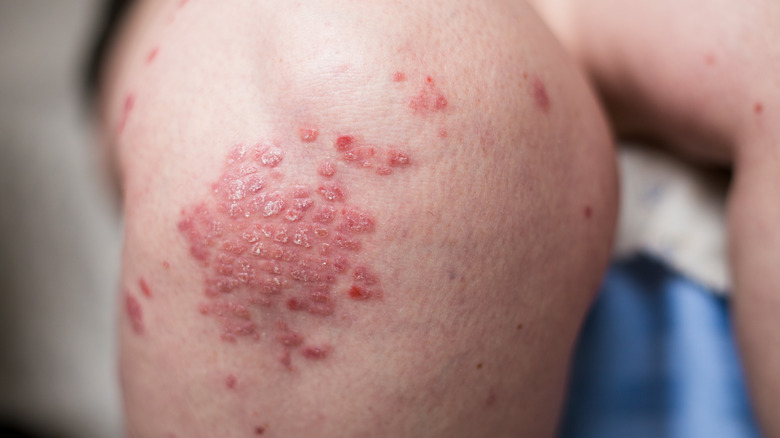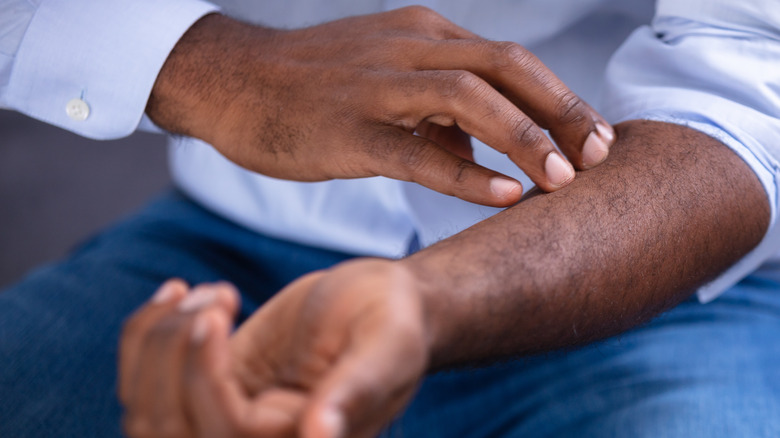What Is Plaque Psoriasis?
Psoriasis is a skin disease in which red, scaly, and sometimes itchy patches appear on the skin. According to WebMD, psoriasis is an autoimmune disorder that can occur anywhere on the body but is more commonly found on the knees, elbows, scalp, and lower back. Because the skin disease is chronic, it's long-term and may flare up occasionally or often, depending on the person. The disorder affects around 8 million Americans and comes in many different forms, such as plaque psoriasis, which is the most common form of psoriasis, reports the National Psoriasis Foundation (NPF). Approximately 80-90% of people with psoriasis have plaque psoriasis.
While the color of plaque psoriasis skin patches will vary based on a person's skin tone, psoriasis patches can appear red with white scale buildup, or purple, dark brown, or gray (via NPF). According to the Mayo Clinic, plaque psoriasis may be caused by the immune system growing skin cells too quickly. When skin cells regenerate at a rapid rate, it may result in red or dark raised skin patches. The reason behind the immune system problem is still unknown.
Plaque psoriasis treatment
There is no cure for plaque psoriasis, but there are steps you can take to relieve uncomfortable symptoms. Keep in mind finding the right psoriasis treatment may take some trial, error, and patience. Verywell Health reports that treatment for plaque psoriasis can range from simple self-care at home to seeing a doctor for prescription medication. To relieve itchiness from plaque psoriasis, try using an ice pack or cold compress, or take a bath with oatmeal products or Epsom salt. Additionally, use warm water in the shower — not hot — and avoid scrubbing too hard. Instead, use a washcloth to gently remove any scales, pat dry once finished, and then apply moisturizer to hydrate the skin.
Although psoriasis is not contagious, certain factors can cause a psoriasis outbreak. According to the Cleveland Clinic, psoriasis outbreaks vary according to person for no real reason. Stress, certain medications, illnesses, and even injuries can result in a psoriasis outbreak. Cold weather is also to blame for plaque psoriasis due to more time spent indoors and less time in sunlight.


